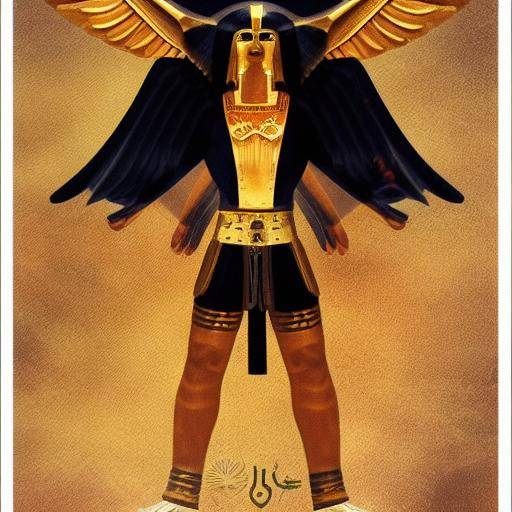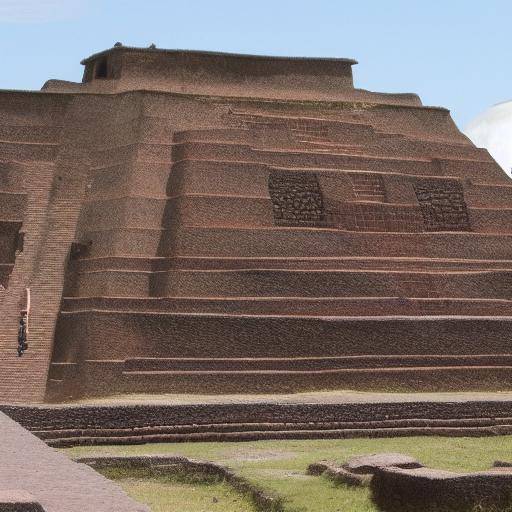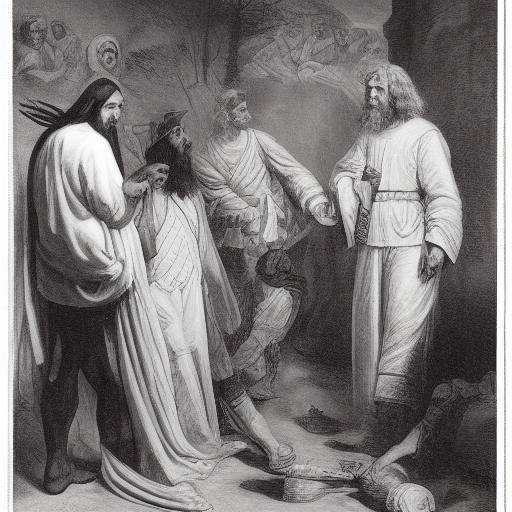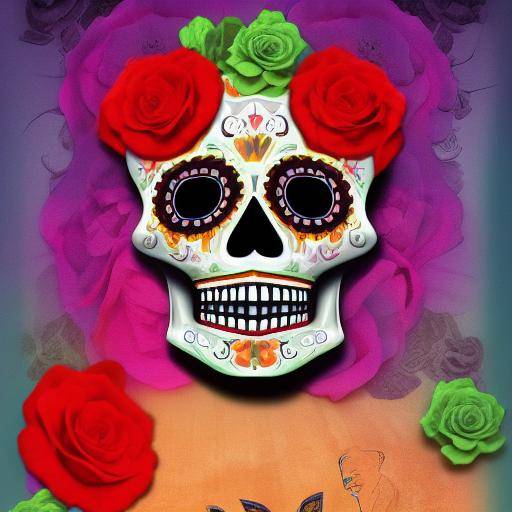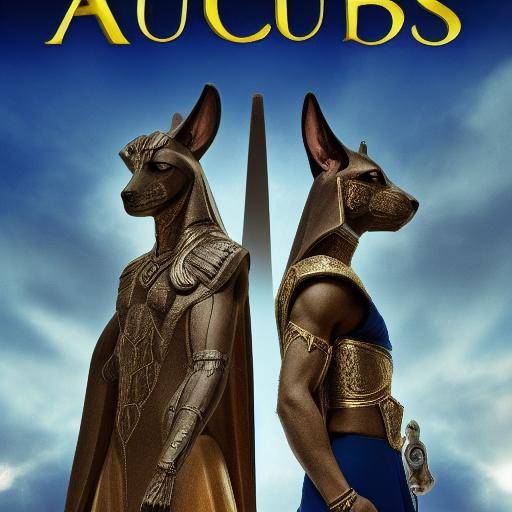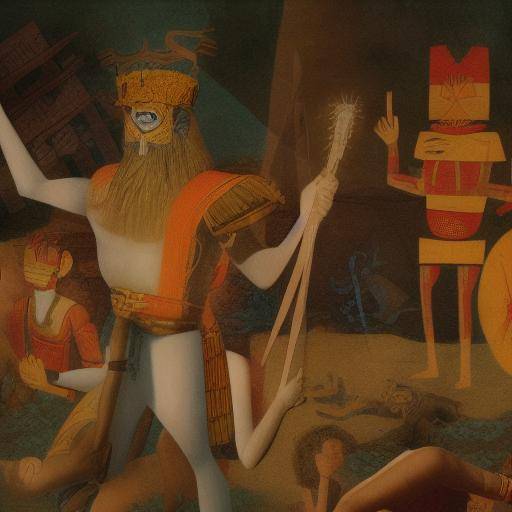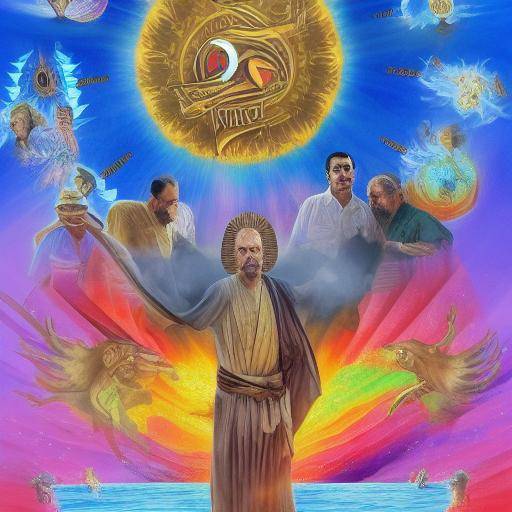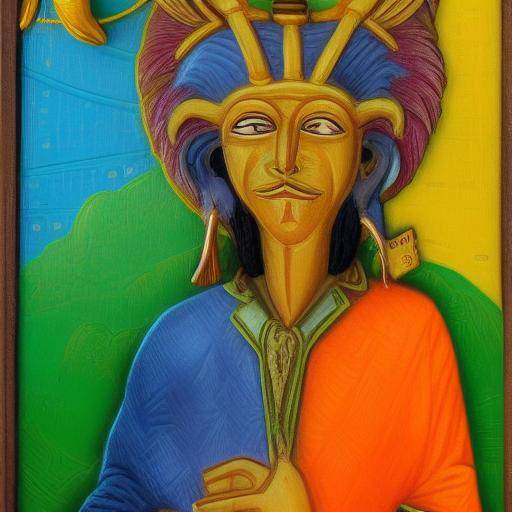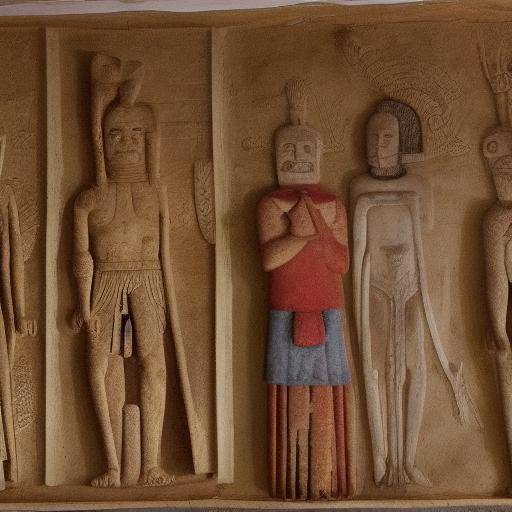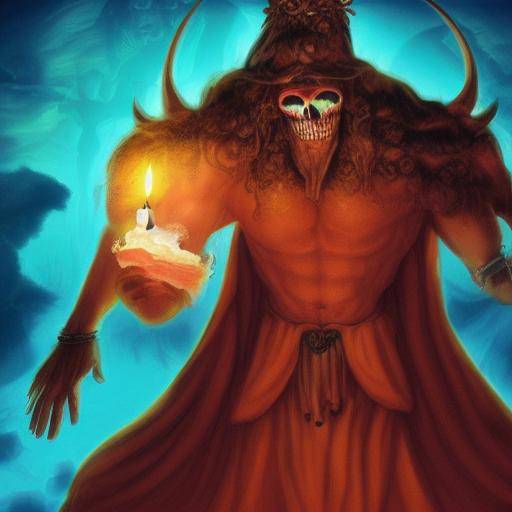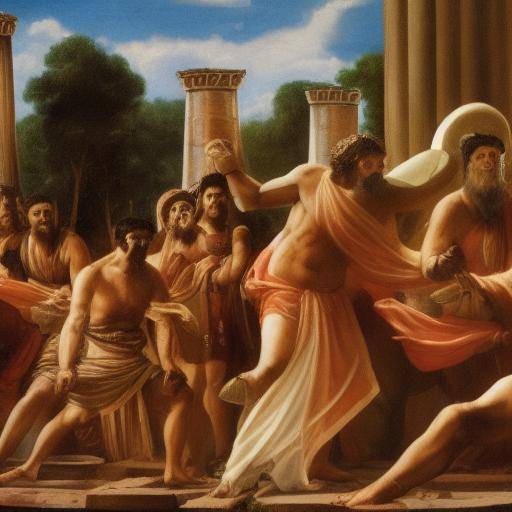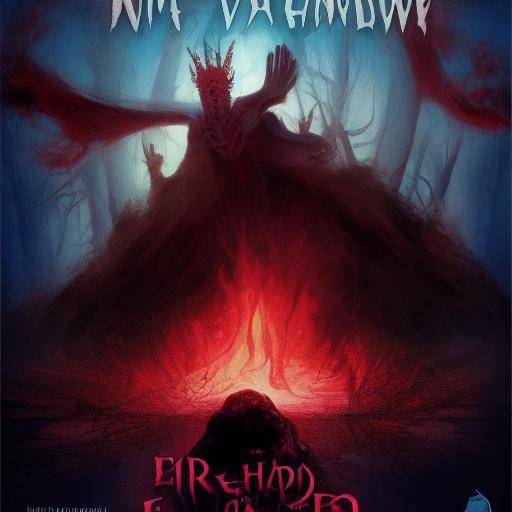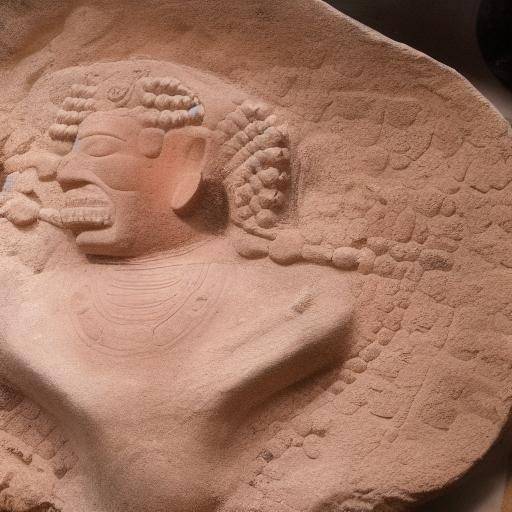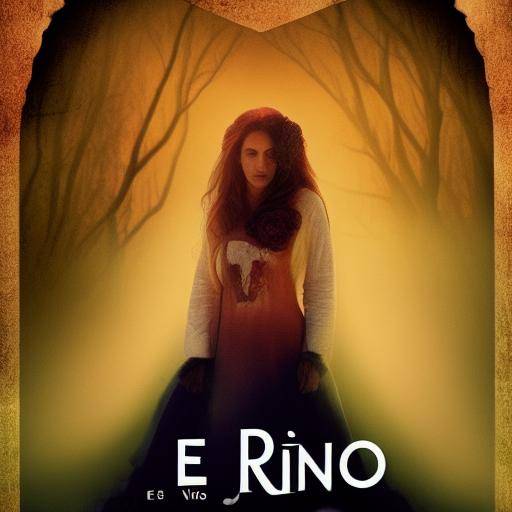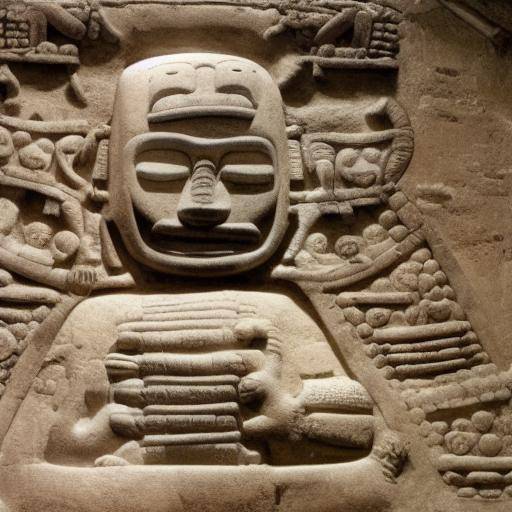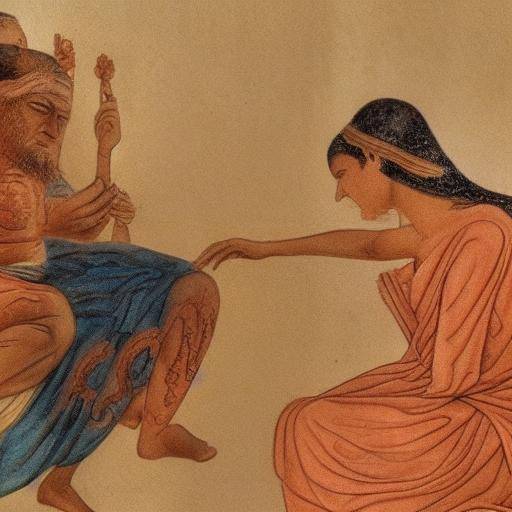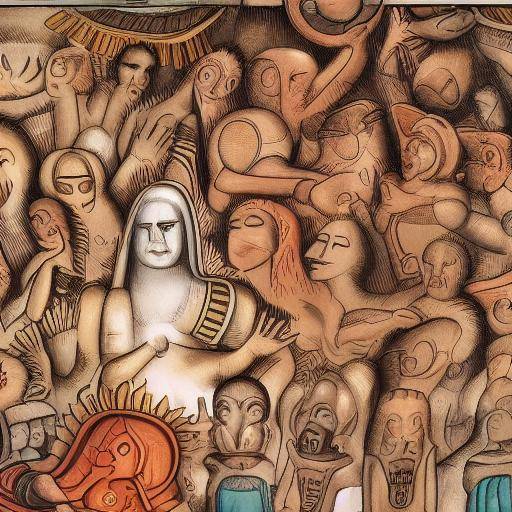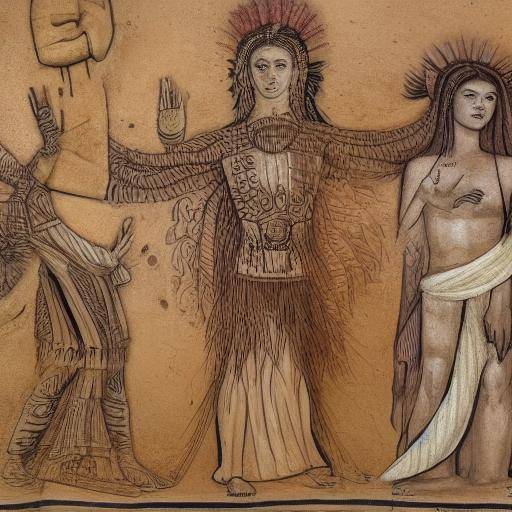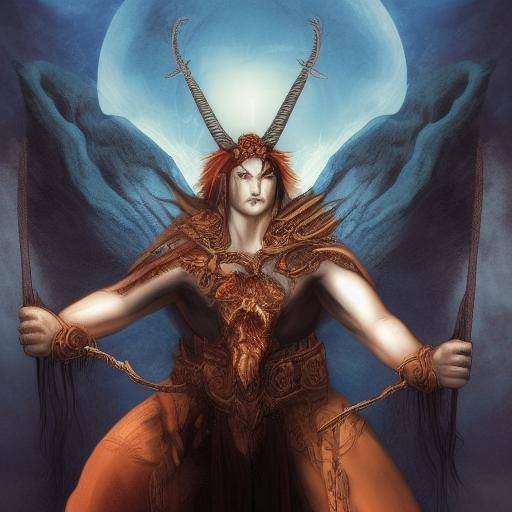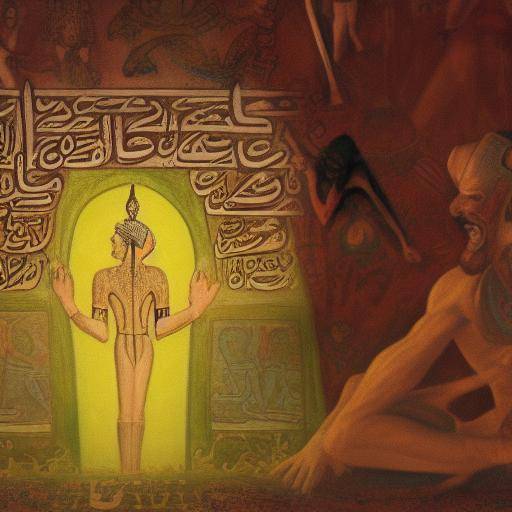
Introduction
Egyptian mythology is one of the most fascinating and enigmatic in history, full of gods, rituals and beliefs about life beyond death. In this article, we will explore the Duat, the concept of the underworld in Egyptian mythology, as well as its relevance in the culture and religion of ancient Egypt. We will discover its origins, meaning, associated beliefs and its importance in Egyptian civilization. In addition, we will examine the relevance of the Duat today and its influence on different aspects of modern culture.
History and Background
Belief in the Duat dates back to the very beginnings of Egyptian civilization. For the ancient Egyptians, life after death was a fundamental aspect of his cosmovision, and the Duat played a crucial role in this conception. The Duat was conceived as an underground kingdom to which the souls of the deceased traveled to face trials and trials that would determine their destiny in eternal life. This underworld was ruled by Osiris, the god of death and resurrection, who judged the dead with the help of a divine tribunal.
Throughout Egyptian history, the Duat concept experienced various transformations and evolutions. Artistic representations, religious texts and popular beliefs about the underworld varied throughout the millennia, reflecting changes in society and the religious vision of the beyond. Over time, the Duat became a central element of Egyptian mythology, influencing funeral practices, embalming rituals and the architecture of the tombs and temples.
Analysis in Deep
The Duat was not only a place of judgment and condemnation, but also an opportunity for transformation and rebirth. The ancient Egyptians believed that passing through the Duat was crucial to achieving eternal life and meeting with the gods. This concept of transit into a higher state, marked by testing and purification, was fundamental in the Egyptian cosmovision and permeated its art, literature and religious practices.
The influence of the Duat in Egyptian society was profound and encompassed everyday aspects, funeral rituals and the stability of cosmic order. This conception of the underworld as a space of transition and purification influenced morality, beliefs about human destiny and the notion of justice in Egyptian society.
Full review
The representation of the Duat in the tombs, burial rituals and sacred texts shaped the Egyptian vision of life after death. The mural paintings, hieroglyphics and funeral amulets reflected the importance of the Duat as an intermediate passage between earthly life and eternal life. The architecture and designs of the tombs, including the famous Book of the Dead, provided guidance and protection for the deceased on his journey through the underworld.
Belief in the Duat also influenced everyday practices, as offerings to the deceased, religious festivities and purification rituals were directly related to the preparation of the soul for its transit through this underground kingdom. This integral vision of the Duat as a point of connection between the earthly and the divine permeated all aspects of life in ancient Egypt.
Comparative analysis
By comparing the concept of the Duat with other conceptions of the underworld in different cultures, its uniqueness and complexity are evident. While in some cultures the underworld is described as a place of punishment or condemnation, in Egyptian mythology it was perceived as a crucial phase in the journey of the soul towards eternal life. This distinction highlights the importance of understanding the Duat in its cultural and religious context to appreciate its full meaning.
Practical Tips and Accessible Recommendations
While the belief in the Duat belongs to an ancient civilization, its influence persists today through various cultural manifestations. Its impact has been filtered into literature, cinema, video games and other means of entertainment, where topics related to life after death and divine judgment are explored. Studies on Egyptian mythology and the underworld continue to attract the interest of academics, archaeologists and enthusiasts of ancient culture.
Industry Information and Expert Reviews
Experts in egyptology and comparative mythology highlight the relevance of the Duat as a lasting symbol of the Egyptian cosmovision. His study not only sheds light on the religious beliefs and practices of ancient Egypt, but also offers perspectives on human nature and our conception of life and death. Currently, scholars and researchers continue to deepen the meaning of the Duat, its connection with other religious traditions and its role in the understanding of the Egyptian symbolic universe.
Case Studies and Applications in Real Life
The Duat remains inspired in various contemporary cultural manifestations. Films, novels and works of art continue to address topics related to the post mortem judgment, the fate of souls and the existence in the beyond through references and motives from Egyptian mythology. This persistent presence of the Duat in the collective imagination demonstrates its permanent influence on culture and art over the centuries.
Future Trends and Predictions
The interest in Egyptian mythology and the underworld, including the Duat concept, will continue to thrive in the future. With the advancement of technology and the global dissemination of information, new research and discoveries in the field of egyptology are expected to shed light on still unknown aspects of this mythology. Moreover, the continued reinterpretation and reimagination of the Duat in popular culture will continue to generate debates and reflections on the universal meaning of life and death.
Conclusion
Egyptian mythology, through concepts such as the Duat, offers a unique window to the beliefs and values of an ancient civilization. The profound influence of the Duat on spirituality, art and Egyptian society makes it an exciting and relevant topic of study today. By understanding its meaning and legacy in contemporary culture, we can appreciate the richness and depth of Egyptian cosmogony and its lasting impact on the history of humanity.
Frequently asked questions
What is the meaning of the Duat in Egyptian mythology?
The Duat represents the underworld in Egyptian mythology, conceived as the kingdom to which the souls of the deceased travel to face trials and trials that would determine their destiny in eternal life.
How is the Duat represented in ancient Egyptian culture?
The Duat is represented in various artistic manifestations, sacred texts and ritual practices, such as mural paintings in the tombs, the Book of the Dead and funeral amulets.
How does the concept of the Duat differ from other conceptions of the underworld in different cultures?
The Duat is distinguished by its emphasis on the judgment and purification of the soul, in contrast to mere condemnation or punishment, which makes it a central element of the Egyptian worldview.
How has the concept of the Duat influenced contemporary culture?
The Duat remains a source of inspiration in literature, cinema, video games and other forms of entertainment, as well as the object of paraademic study and researchers in the field of comparative mythology and egyptology, which demonstrates its lasting influence in modern culture.
Are there still rituals or celebrations related to the Duat today?
While rituals and celebrations in their original form are not practiced, the Duat remains the subject of study and reinterpretation in academic, artistic and cultural contexts, in which its meanings and symbolisms are explored.
What is the relevance of the Duat today?
The relevance of the Duat lies in its contribution to understanding the religious beliefs and practices of ancient Egypt, as well as its influence on universal subjects such as life after death and divine judgment.
Conclusion
The Duat, as a representation of the underworld in Egyptian mythology, remains a topic of great interest and relevance in contemporary culture. Its meaning transcends the borders of time and space, offering a unique window to the complex beliefs, values and visions of the beyond in ancient civilization. By understanding its lasting influence and legacy in modern culture, we can appreciate the depth and wealth of Egyptian mythology, as well as its impact on the universal understanding of human existence.
These elements highlight the importance of the Duat as a fundamental concept in Egyptian mythology and cosmovision, as well as its relevance in contemporary culture. By exploring its origins, meaning and manifestations in ancient Egyptian society and today, its perennial influence on the human understanding of life, death and beyond is revealed.
Remember that if you want to deepen this fascinating theme, I invite you to continue exploring the riches of Egyptian mythology and the intriguing concept of the Duat. His legacy endures over the centuries, ready to be discovered and reinterpreted today!

